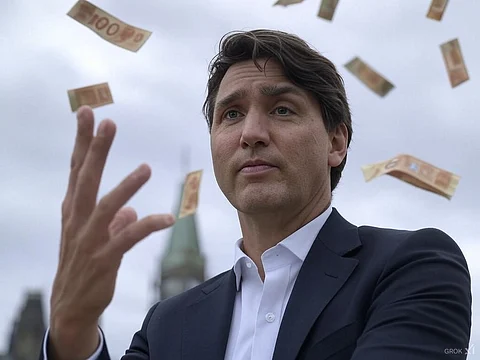Ottawa considers huge monetary bailout if Trump imposes tariffs
Is it possible the Government of Canada learned nothing from inflationary bailout spending during the pandemic?
On Tuesday, the Globe and Mail reported Ottawa may provide billions in pandemic-level financial support to workers and businesses if the U.S. imposes tariffs.
President Donald Trump has threatened a 25% tariff on Canadian goods as soon as February 1.
A study by the Canadian Chamber of Commerce suggests the tariff would shrink Canada's GDP by 2.6% or roughly $78 billion, costing Canadians around $1,900 per person annually.
According to various sources, including the Parliamentary Budget Officer, the Canadian government's total spending related to the COVID-19 response was significant.
As of the end of 2022, the government had committed to spending or had already spent approximately $576 billion.
Inflation in Canada saw significant increases in 2021 and 2022.
Ottawa's financial aid under Trump tariffs could be similar to the Canada Emergency Response Benefit (CERB) to help laid off workers.
Also, Ottawa could help businesses maintain liquidity through tax deferrals, wage subsidies, or grants to cover operating costs affected by tariffs.
Ottawa could waive the one-week waiting period for EI benefits, providing expedited financial support to workers who might lose their jobs due to tariffs.
Much of the financial support would require new legislation, which can only be passed when Parliament reconvenes.
Currently, Parliament is prorogued while the Liberal Party of Canada finds a new leader after the resignation of Justin Trudeau — who is still active in the position of prime minister.


